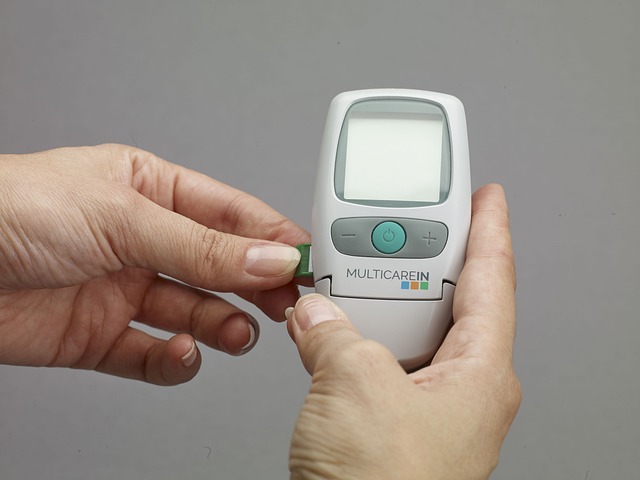Cholesterol levels and thyroid health are interconnected aspects of overall well-being. Regularly assessing cholesterol through a Standard Thyroid Blood Test UK is vital for cardiovascular health, as it detects total cholesterol, LDL, HDL, and sometimes triglycerides. This test empowers individuals to manage heart health by addressing risks early. The standard thyroid blood test identifies thyroid issues like hypothyroidism or hyperthyroidism through hormone levels (T4, T3), aiding treatment decisions. Understanding test results is key to managing health, with ideal cholesterol levels varying based on age, family history, and overall health.
“Discover how simple blood tests can be your key to managing cholesterol levels. This comprehensive guide explores the essential aspect of understanding and interpreting cholesterol results, especially in the context of the UK’s standard thyroid blood test.
Cholesterol, often overlooked, is a crucial indicator of heart health. With regular checks, you can navigate potential risks effectively. Learn how these tests work, what they reveal, and the steps to take based on your outcomes. Uncover the importance of early detection and take charge of your well-being.”
- What is Cholesterol and Why Measure It?
- Understanding Standard Thyroid Blood Tests in the UK
- How to Interpret Your Cholesterol Test Results
What is Cholesterol and Why Measure It?
Cholesterol is a waxy substance found in our blood, essential for various bodily functions as it aids in building cell membranes and producing hormones. However, too much cholesterol, particularly LDL (low-density lipoprotein) or ‘bad’ cholesterol, can be detrimental. It can accumulate in the walls of arteries, leading to atherosclerosis, a condition that narrows these vital vessels and increases the risk of heart disease and stroke.
Measuring cholesterol levels is crucial for maintaining cardiovascular health, especially when coupled with a standard thyroid blood test UK. This simple procedure involves drawing a small sample of blood to check total cholesterol, LDL, HDL (high-density lipoprotein or ‘good’ cholesterol), and sometimes triglyceride levels. Regular monitoring enables individuals to take control of their heart health by identifying potential risks early on and making lifestyle adjustments or taking medications if necessary.
Understanding Standard Thyroid Blood Tests in the UK
In the UK, the standard thyroid blood test is a crucial tool for assessing thyroid function and detecting potential issues. This test typically measures two key markers: thyroxine (T4) and triiodothyronine (T3), which are hormones produced by the thyroid gland. These hormones play a vital role in regulating metabolism and energy levels throughout the body. The T4 hormone is the main storage form of thyroid hormone, while T3 is the active form that influences bodily functions.
The standard thyroid blood test is usually recommended for individuals experiencing symptoms like fatigue, weight changes, or irregular menstrual cycles, which could indicate an underactive thyroid (hypothyroidism) or overactive thyroid (hyperthyroidism). The test involves a simple blood draw, and results are analysed to determine if there are any imbalances in thyroid hormone levels. This information is essential for healthcare professionals to make informed decisions about treatment options, including medication adjustments or further investigations.
How to Interpret Your Cholesterol Test Results
Cholesterol test results can seem confusing, but understanding them is key to managing your health. The standard thyroid blood test in the UK typically includes measurements of total cholesterol, LDL (low-density lipoprotein) or ‘bad’ cholesterol, and HDL (high-density lipoprotein) or ‘good’ cholesterol. Normal levels for total cholesterol are below 5.2mmol/L, while ideal LDL levels should be less than 3mmol/L and HDL levels should be above 1.0mmol/L for men and 1.3mmol/L for women. Interpretations of these results will vary based on your age, family history, and overall health. For example, high LDL levels can increase the risk of heart disease, while high HDL levels are protective. Your doctor can help you understand what your specific test results mean and recommend lifestyle changes or medications if necessary.
Cholesterol levels, often overlooked, are a crucial aspect of our overall health. With simple and accessible blood tests, such as the standard thyroid blood test in the UK, it’s now easier than ever to monitor and manage cholesterol. By understanding your results, you can take proactive steps towards better cardiovascular health. Regular checks, combined with informed decisions, empower us all to navigate towards a healthier future.
